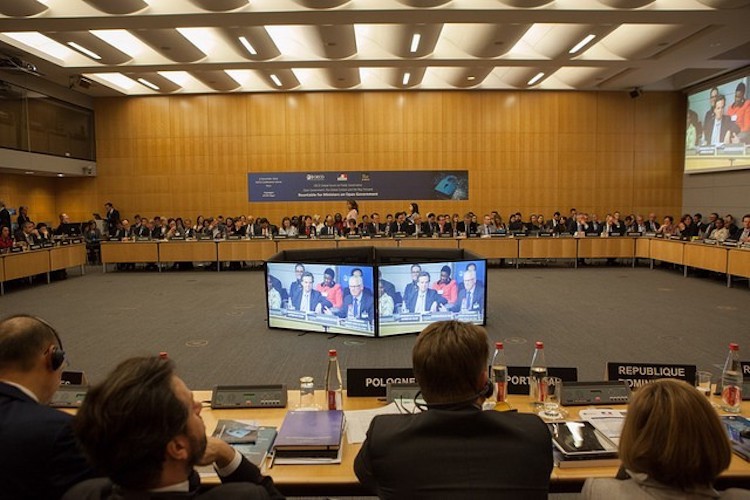By Kester Kenn Klomegah | MOSCOW | 10 November 2025 (IDN) — Women’s empowerment was uniquely exemplified by voting for Samia Suluhu Hassan as the new president of the United Republic of Tanzania late October 2025, but that election has generated distressing reports. Samia Hassan was inaugurated as Tanzania’s first female president in March 2021, and her political status was highly praised as a noticeable breakthrough in gender representation within African politics.
While she has taken a transformative shift away from an era previously marked by oppression, Samia Hassan, 65-year-old Tanzanian politician serving as the sixth president of Tanzania, unexpectedly made drastic changes that signaled distinctive features toward political authoritarianism. She has also been blamed for shattering stability in the East African nation.
The October 2025 election, which consolidated Samia Hassan’s power with 97.66% of the vote, was marred by accusations of massive fraud and a severe repression of opposition protests. The African Union’s observer mission stated the election “did not comply” with regional or international standards, citing irregularities and the internet shutdown. Numerous human rights organizations accused her government of authorizing the use of live ammunition against civilians. The main opposition party claimed it had documented up to 1,000 people killed, labeling the acts as crimes against humanity.
The government denied these claims; while President Hassan acknowledged deaths occurred, her government called the opposition’s death toll “hugely exaggerated”
The Southern African Development Community (SADC), its Observer Committee issued the highest condemnation after the election results in Tanzania, declaring as the winner of the presidency. The Committee said it strictly followed and critically assess the conduct of the electoral process in accordance with the national legal framework.
In official remarks, SADC officials reiterated that there were serious violations relating to civic and political rights on 29 October 2025. In the period leading up to election day, massive demonstrations by opposition political parties, civil society organizations, youth and women’s groups signaling gross misunderstanding and that reflected diverse perspectives. SADC deployed its observers across 27 out of 31 regions in the country, underscoring its commitment to promoting democratic governance and credible electoral processes within the region.
An independent African Union’s election observation group, headed by Mokgweetsi E.K. Masisi, former President of the Republic of Botswana, was deployed in Tanzania and Zanzibar from 14 October to 3 November 2025, to observe the 29th October elections, later indicated, in an official statement published on its website, that there were serious election violations.
The group’s main task was (a) assess whether the 2025 electoral process complies with AU principles; (b) ascertain that the environment was peaceful for conducting democratic elections that will foster acceptance of the electoral outcomes; (c) evaluate the level of preparedness of the electoral commission and other electoral institutions; (d) provide recommendations for improving future elections and (e) demonstrate the AU’s solidarity and support for Tanzania’s democratic and electoral processes to ensure that the conduct of genuine elections contributes to the consolidation of peace and stability, and promotes inclusive development in the country.
It is worth noting that the group was unable to meet with some stakeholders due to restrictions imposed by the Government of Tanzania. Next, the group was unable to complete election day observations at some polling stations due to outbreaks of deadly protests and the subsequent six-day internet shutdown.
The subsequent arrest and prosecution of Chairperson Tundu Lissu on treason charges, and the arrest of Vice Chairperson John Heche on immigration charges, as well as the high courts banning of the opposition party from conducting any political activity due to allegations of disproportionate use of party resources, incapacitated the main opposition. Some of the key constitutional reforms that were not implemented before the final elections.
The group evaluated the elections in line with international and regional standards for democratic elections, but emphasised that regular elections without genuine competition and adherence to democratic principles result in voter apathy and ultimately lead to citizens’ disengagement from political activities.
It further noted serious violations relating to the voter registration drive that enrolled new voters, voter education, logistics planning, and the procurement of biometric verification kits, among others. Despite these efforts to show a mixed picture of women’s political participation, the numbers remained significantly low.
It noted that youth participation in electoral processes faced significant challenges and as such was under-represented. The group noted with concern, allegations of excessive use of force by the police and the military in maintaining law and order during protests that characterised election day and immediately afterwards.
While the group has acknowledged commendable efforts undertaken to prepare for the elections, to introduce technology in election administration, and to promote the participation of marginalised groups in voting, it however pointed to the legal framework’s failure to comply with some African Union (AU) democratic norms and international standards for democratic elections, non-implementation of recommended reforms from previous election observation missions, the interruption of the polling process in some parts of the country, and the internet shutdown on election day and afterwards compromised the integrity of the elections.
It concluded that (a) the 2025 Tanzania General Elections did not comply with AU principles, normative frameworks, and other international obligations and standards for democratic elections; (b) the environment surrounding the elections—before, during, and immediately after—was not conducive to peaceful conduct and acceptance of electoral outcomes; (c) the preparedness level of the electoral commission and other electoral institutions was inadequate to address the challenges that compromised the integrity of the 2025 Tanzania General Elections.
Kester Kenn Klomegah is a veteran journalist, policy researcher, and business consultant. His work focuses on international relations, geopolitics, and Africa’s economic development in the context of global power shifts. His writing regularly appears in leading international publications. [IDN-InDepthNews]
Photo credit: Voices for Transparency

